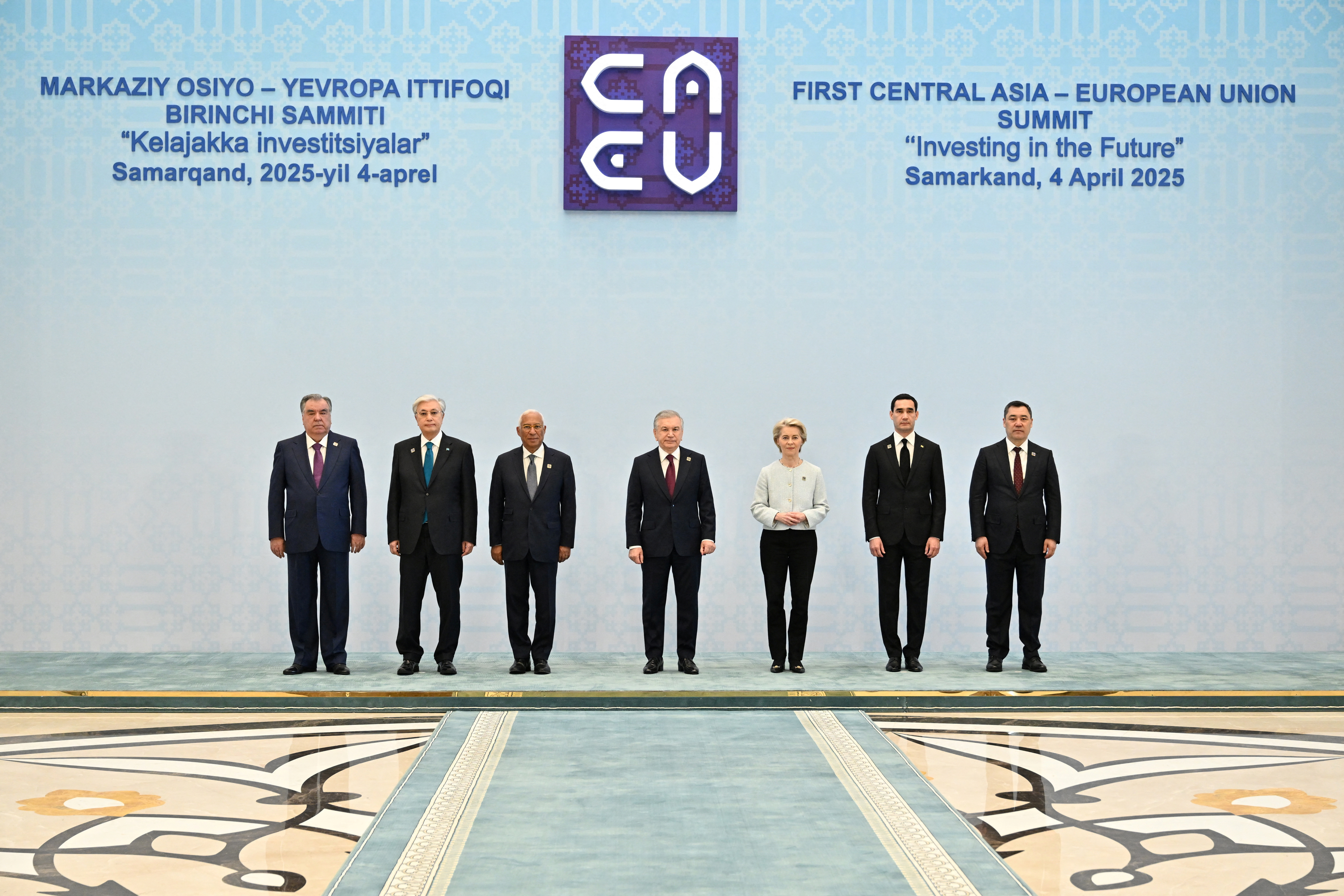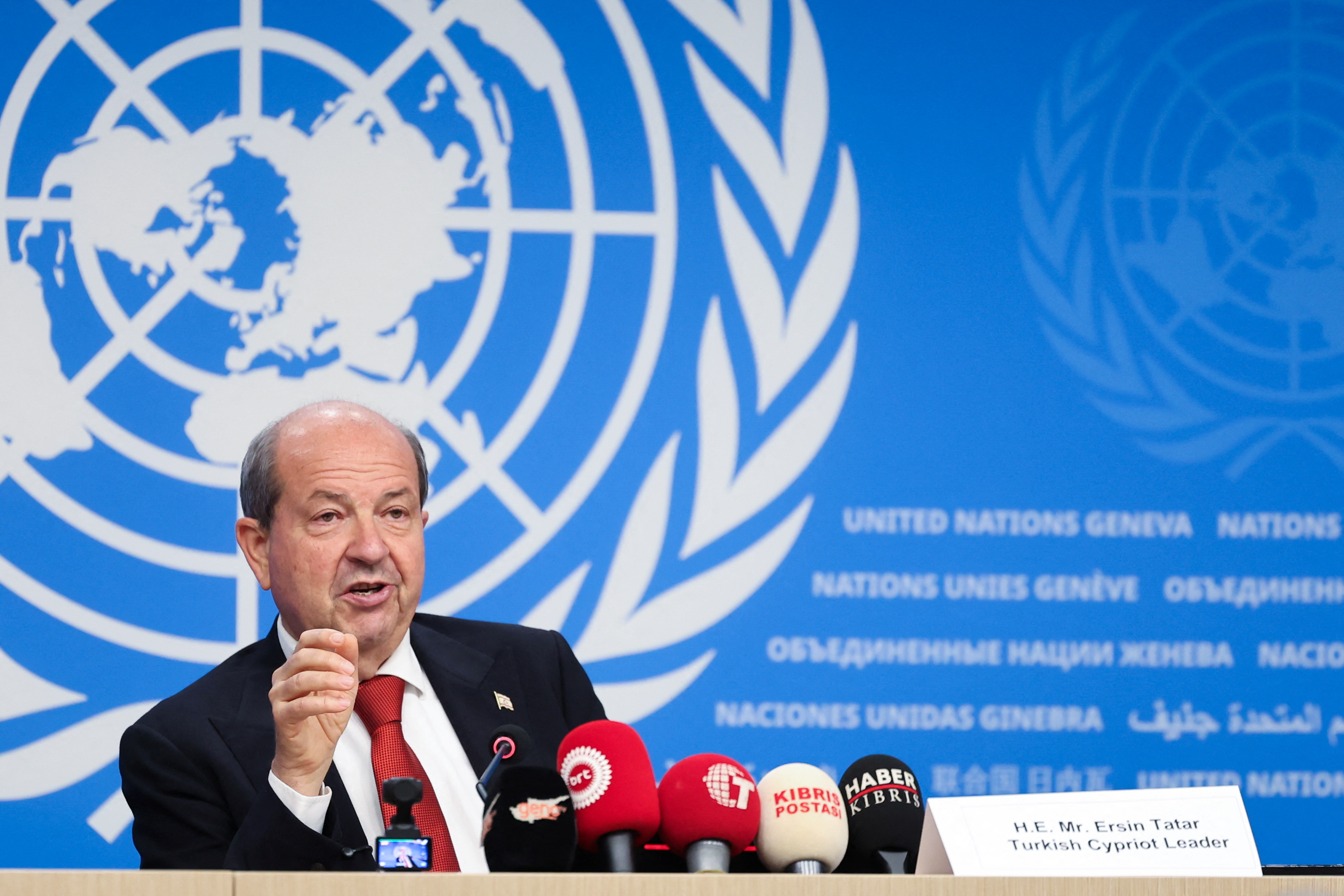Turkish Cypriot leader Ersin Tatar called on central Asian Turkic states to “be more careful”, amid a wave of anger in Turkey after five central Asian countries signed a joint declaration with the European Union which ruled out the prospect of any of them recognising the north as an independent country.
Four of those states, Kazakhstan, Kyrgzstan, Turkmenistan, and Uzbekistan, have majority Turkic populations, and are members of the Organisation of Turkic States (OTS). The fifth is Tajikistan.
The joint declaration was signed in the Uzbek city of Samarkand earlier this month said all five countries “reaffirmed our strong commitment” to United Nations security council resolutions 541 and 550.
Resolution 541 said the security council “deplores the declaration of the Turkish Cypriot authorities of the purported secession of part of the Republic of Cyprus” while calling on UN member states not to recognise the north.
Resolution 550 said it “reiterates the call upon all states not to recognise the purported state of the ‘Turkish Republic of Northern Cyprus’, set up by secessionist acts, and calls upon them not to facilitate or in any way assist the aforesaid secessionist entity”.
Speaking after a meeting with Turkey travel agencies association (Tursab) vice chairman Davut Gunaydin, Tatar first moved to play down the deal’s importance.
“This situation probably emerged because they entered into such a process in terms of their relations with the EU. This is normal, after all, these countries have various different projects with the EU, and all kinds of their own interests and benefits in terms of the private sector and the state,” he said.
He added that “the TRNC has love and affection towards all member states of the OTS, and there would be nothing more natural than this country being in the union of countries which have the same culture and language”.
However, he did say the EU had as “its main goal” in deepening its relations with central Asian states “the prevention of the TRNC, which has been an observer member of the OTS since 2022”.
“The Turkish position regarding Cyprus is a two-state solution, and we expect the Turkic states to establish relations with the TRNC as much as they have established relations with the Greek Cypriots,” he added.
On the matter of the articles of the joint declaration which precluded recognition of the north, he said it was possible that the parties to the agreement had “overlooked” them, and added, “do they know where the outcome of these articles will lead and what consequences they will have, and for whom?”
“The Turkic states should be a little more careful about their relations with the Greek Cypriot side. They can have relations with the EU. The EU is a union, but it is not under the Greek Cypriots’ sovereignty, given that their population is 800,000. The Turkic states can also establish relations with the Greek Cypriots, but they should be careful because the game played by the Greek Cypriots is completely different,” he said.
“In fact, the game played by the Greek Cypriots is inhumane. The Turkic states should tell the Greek Cypriots, ‘wait’, until the rights and laws of the Turkish Cypriot people are registered internationally. I think there should be a treatment along the lines of, ‘we will meet again after an agreement is reached’.”

News of the deal, and of central Asian countries deciding to open embassies in Nicosia, has not gone down well in Turkey, meanwhile, with the country’s opposition pointing the finger of blame squarely at the ruling AK Party.
Ayyuce Turkes Tas, deputy leader of the Iyi Party responsible for the Turkic world and overseas relations, whose father, former Turkish deputy prime minister Alparslan Turkes, was himself a Cypriot, was among the many to offer strong criticism for the government.
“Neither the presidency of the OTS nor the foreign ministry made the TRNC feel how important it is for the region or for Turkey, and that is a red line … There is a serious restructuring going on in the region,” she said.
“It comes to mind whether some concessions have been made regarding Cyprus in this so-called solution process in Turkey and with the uprising process in our country … We need to analyse where there are deficiencies and mistakes, where we could not adequately explain our foreign policy even to our brother countries … we could not make them feel the importance of the TRNC.”
Earlier, the CHP’s deputy leader for financial affairs Ozgur Karabat said the country’s government is “turning a blind eye to the strengthening of the Greek Cypriot administration’s strengthening of its status as a state”.
“The AK Party has ruled Turkey for 23 years yet has not been able to get even one country to recognise the TRNC,” he added.
“The AK Party, which thinks of itself as a ‘game maker’, does not see that it is actually an extra,” he said, before going on to use Turkey’s relationship with Qatar, and Qatar’s relationship with the Republic of Cyprus, as an example.
“Many countries are working to extract energy resources in the eastern Mediterranean. So, what is Qatar, which the AK Party calls a friend, doing? It is drilling on behalf of the Greek Cypriots!” he began.






Click here to change your cookie preferences